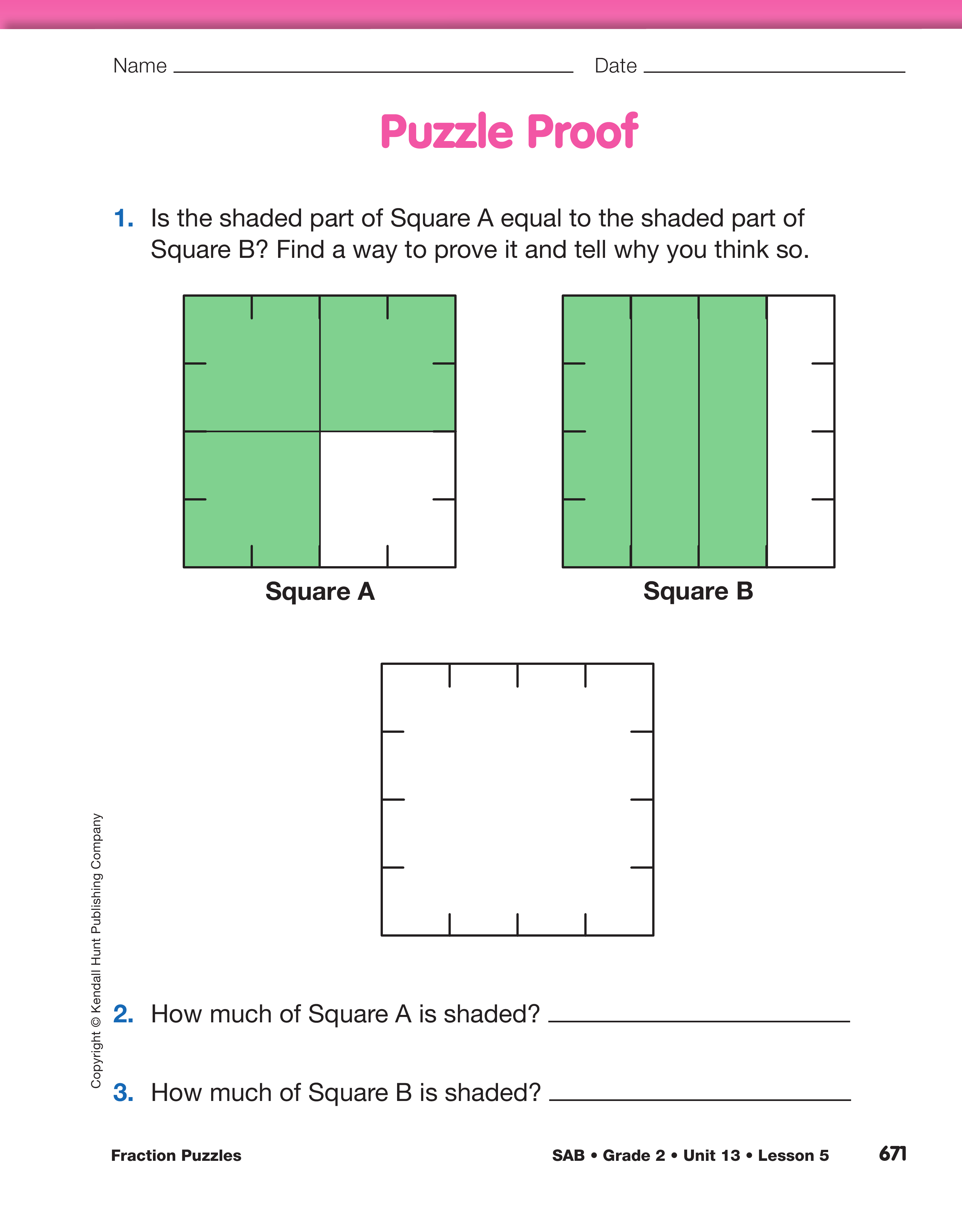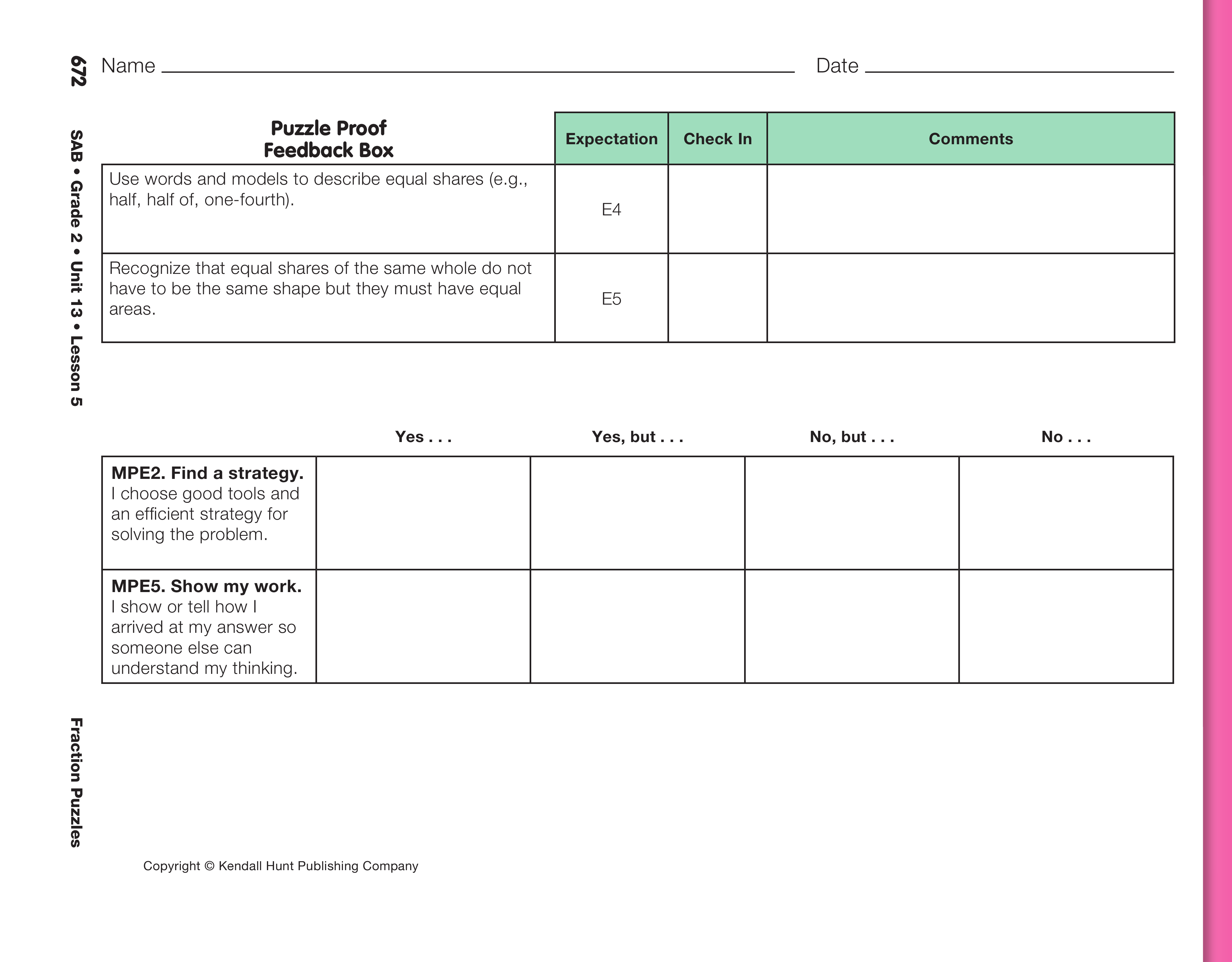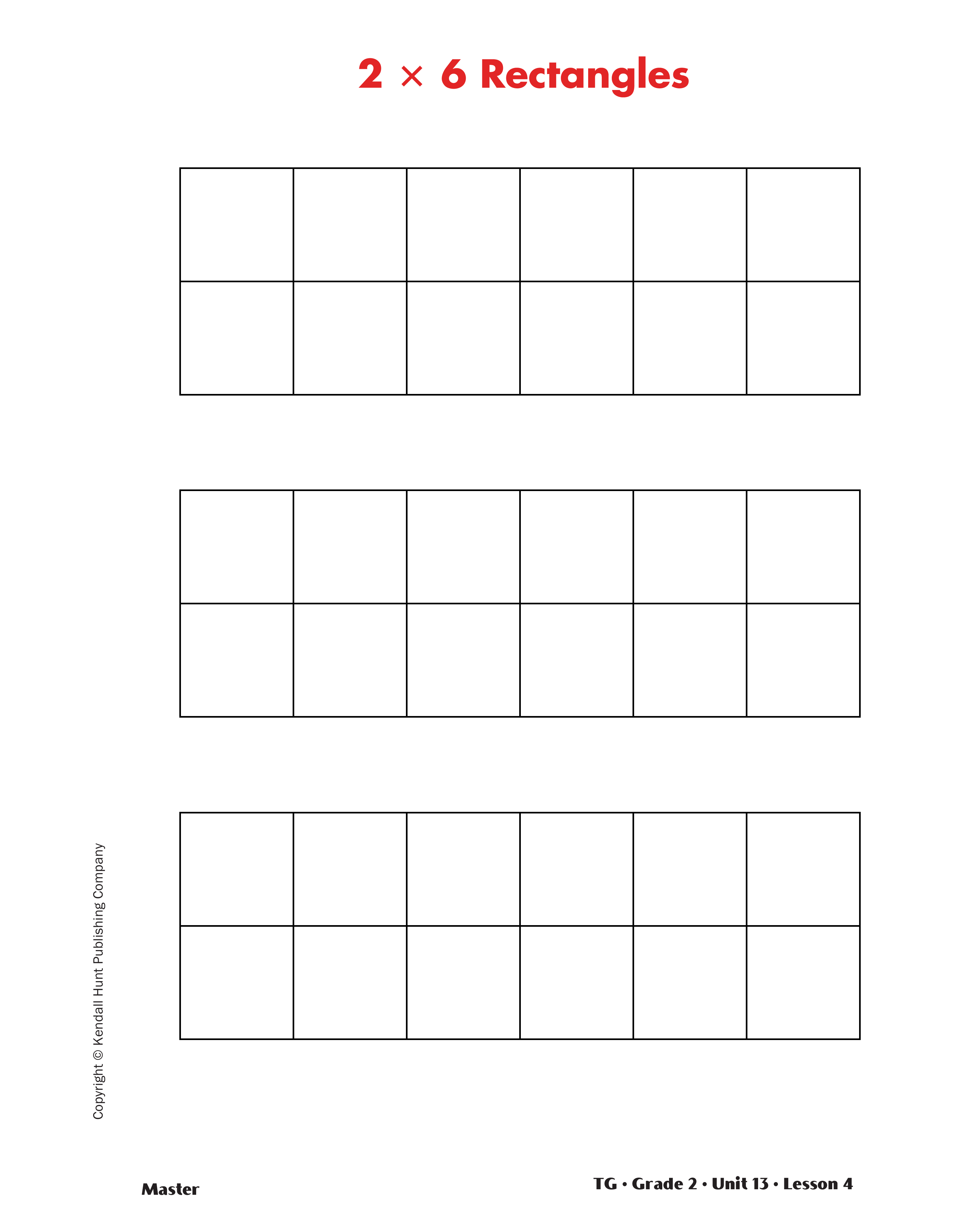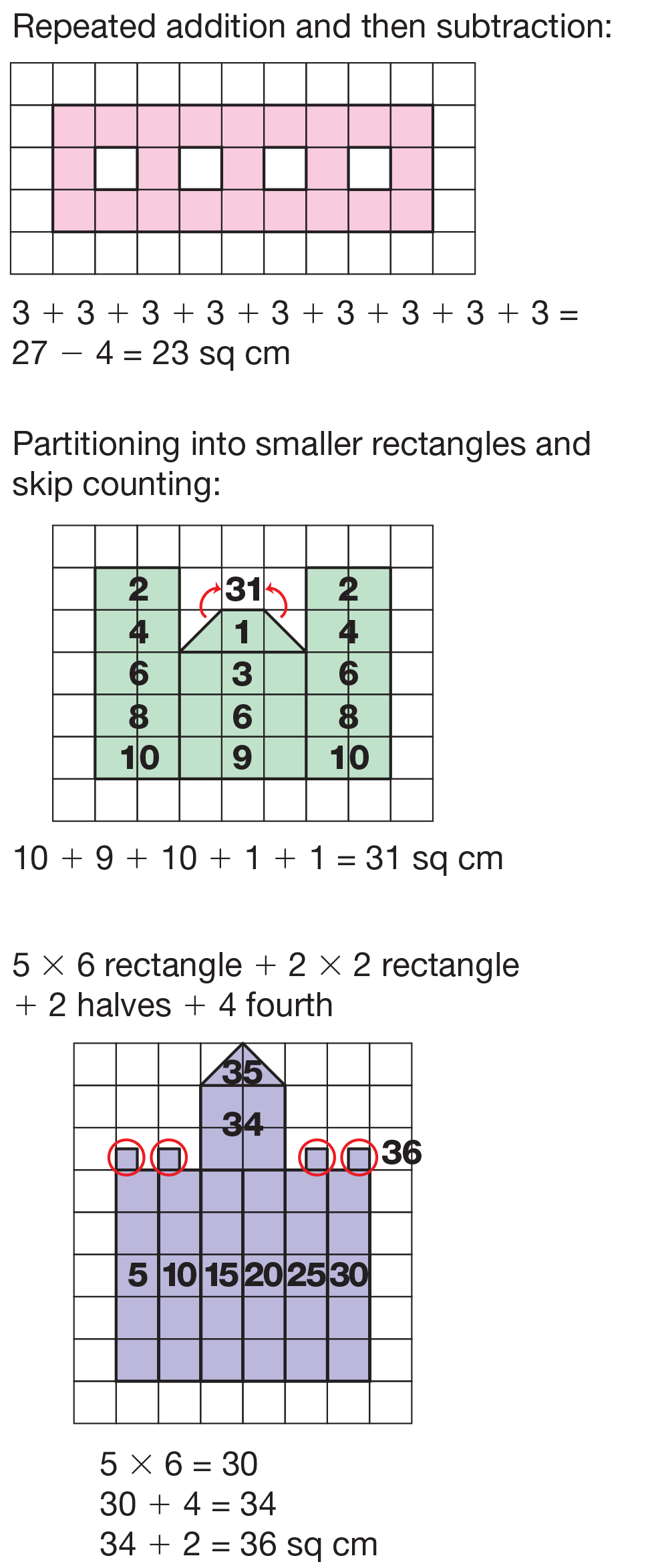Upon completion, ask selected students to show
their solution strategies for Questions 11–13 using a
display of the Shapes on Grids pages. See Figure 10
for sample solution strategies.
Ask questions such as
the following:
- How did you find the area?
- How did you label your answer? (square centimeters)
- Who would like to explain a different strategy? Did
anyone use skip counting? Did anyone divide the
shape into smaller rectangles?
- What did you count first—the whole centimeter
squares or the partial centimeter squares? Why? (Possible response: When you write the area, you
write the whole square centimeters first and then
the partial square centimeters.)
- How did you decide how many whole centimeter
squares could be made out of your partial centimeter
squares?
- How many half square centimeters do you put
together to make one square centimeter? (2)
- How many fourth square centimeters do you put
together to make one square centimeter? (4)
- How many fourth square centimeters do you put
together to make one-half square centimeter? (2)

If students have difficulty determining the area of shapes
with whole and partial square centimeters, encourage them
to count the whole square centimeters first and then add the
fractional parts. After they find the number of whole square
centimeters, students can continue numbering the fractional
parts by writing the same number on 2 halves, 4 fourths, or a
half and 2 fourths. See Questions 12–13 in Figure 10. For
Question 12, the total number of whole square centimeters is
30 and the two halves are number 31. For Question 13, the
total number of whole square centimeters is 34, the two
halves are number 35, and the four fourths are number 36.
Assign the Shape Grids at Home Homework
Masters after Part 3 of the lesson to provide more
practice finding the area of shapes that include half
and fourth square centimeters.

















